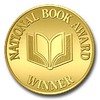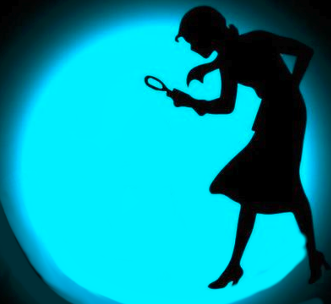 Occasionally, I get emails from readers troubled by how hard of some of the older works are to read—18th and 19th century novels. I feel their pain.
Occasionally, I get emails from readers troubled by how hard of some of the older works are to read—18th and 19th century novels. I feel their pain.
Great works are rarely easy breezy reads—think Dostoevsky, Melville, Hawthorne, Eliot, Faulkner, James, Conrad. These aren't the authors we lug to the beach. They all write books that are challenging for a host of reasons, not least of which is length. Their books also involve complex language and diction, arcane allusions and metaphors, and heady philosophical issues.
Even authors of a more recent vintage can be tough to tackle—Vladamir Nabokov, Salman Rushdie, Margaret Atwood, Don DeLillo, Thomas Pynchon—especially because of their post-modernist bent...which, among other things, means they constantly undercut their own meaings.
Here's the question: Should book clubs tackle the “great works” of literature? Does doing so make a club more "legitimate"? If so, in whose eyes?
Or is this a non-issue, completely irrelevant to the purpose of our book clubs...and especially to the pleasure we derive from them? Still...it's interesting to ponder.
Questions for Book Clubs:
- Is it enjoyable to read the "great works"? Which ones? Are they challenging in a good way—or too challenging to enjoy?
- Does reading critically acclaimed books, contemporary or classic, make us "better people"... or just give us bragging rights?
- If we choose not to read the "big" authors, are we missing out on something? If so...what?
 Do you ever find yourself mourning the end of a book—you finish the last sentence, and it's like saying goodbye to a dear friend?
Do you ever find yourself mourning the end of a book—you finish the last sentence, and it's like saying goodbye to a dear friend?
I’d been reading Richard Ford’s The Lay of the Land. By the time I reached the end, I’d become so caught up in Frank Bascombe’s mind—his life and his ideas about life—that it was hard to leave him.
Then I turned around to start a new book, and I found it hard. Like making new friends—it required energy and commitment.
Do I even like these people? Do I really want to spend time with them? Do I want to make the effort to learn all about them? Hopefully, we stick with the book, to the point where the story sucks us in—and we beoome engaged once again. Of course...then it's eventually goodbye.
Questions for Book Clubs
1. Which books have been hard ones for you to end—it feels like saying goodbye to dear friends?
2. Which books have you had difficulty getting caught up in? You’re not sure you’ve got the energy or interest to invest in getting to know a new group of people.
 We’re all bibliolatrous when it comes to books—otherwise, you wouldn’t be reading this. The question is, how do you love your books—not how much, but in what manner do you love them? For Valentine’s Day, I think it appropriate for us to consider the ways.
We’re all bibliolatrous when it comes to books—otherwise, you wouldn’t be reading this. The question is, how do you love your books—not how much, but in what manner do you love them? For Valentine’s Day, I think it appropriate for us to consider the ways.
You're a Courtly Lover if you . . .
♥ Can't bear the thought of using an e-reader (a Kindle)
♥ Use bookmarks; never leave an open book face down
♥ Never write on or dog-ear the pages
♥ Hate having to part with old books, even ones you dislike
♥ Always remove the dust jacket while reading
♥ Never read while eating
♥ Never read in the tub or at the beach (especially with a
hardcover)
♥ Adore the smell and sound of opening a brand new book.
For you ”a book’s physical self is sacrosanct . . . its form inseparable from its content.” Your duty as a Platonic lover “is a noble but doomed attempt to conserve forever the state of perfect chastity in which the book left the bookseller.”
You're a Carnal Lover if you . . .
♥ Love using an e-reader (a Kindle)
♥ Leave the book splayed—even knowing it damages the spine
♥ Write, circle underline, or dog-ear the pages
♥ Pass on old books with eagerness
♥ Use the dust jacket’s flap as a bookmark
♥ Love to read while you eat, bathe, or go to the beach
♥ Use books for doorjams, paperweights, drink coasters, or
shims
♥ Love used books because others have enjoyed what you’re
enjoying
For you ”a book’s words are holy, but the paper, cloth, cardboard, glue, thread, and ink that contain them are merely vessels.” You feel no remorse in treating them wantonly because “hard use is a not a sign of disrespect but of intimacy.”
Here are the two extremes. Thanks to Anne Fadiman’s delightful book, Confessions of a Common Reader, for these two distinctions. Fadiman talks about her father, who when traveling would rip out pages he’d already read and toss them into the trash—it lightened his load—obviously a carnal lover. At the other end of the spectrum is a friend of hers who buys two books, one to read . . . and the other to preserve in its pristine state on the bookshelf—courtly to the max.
A fun book club discussion: which type of lover are you?
 Too young to die. John Updike was only 76 and, many suspect, still taking copious notes as he drew his last breath in hospice care in Massachusetts on January 27.
Too young to die. John Updike was only 76 and, many suspect, still taking copious notes as he drew his last breath in hospice care in Massachusetts on January 27.
His lifelong output was astonishing, not just in number but genre: novels, short stories, verse, essays, and criticism. On subject matter, he was equally wide-ranging, moving from literature and art to favorite subjects like golf and baseball.
Considered America’s preeminent recorder of the middle class, he gave “the mundane its beautiful hue,” as he himself put it. Some critics believe his sentences—lyrical things of beauty in themselves—lack the heft to carry ideas, but others feel his writing is a polished reflection of the world.
Critics find themselves hardpressed to pinpoint a single masterpiece, but most mention the Rabbit Tetrology (from 1960-90)—Rabbit, Run; Rabbit Redux; Rabbit is Rich; Rabbit at Rest—chronicling the life of fictional Harry Angstrong.
Other favorites include Couples, The Coup, The Witches of Eastwick and, recently, the Widows of Eastwick. But that short list doesn’t begin to cover the body of his work. My advice—get hold of an obituary in a major newspaper or national news magazine, where his oeuvre will be covered in depth.
- It would be fun to read Witches…then Widows of Eastwick. You might attempt the Rabbit Tetrology, too, though it’s not my favorite.
- For fun, read Updike's famous short story “A & P” in our free LitCourse 4. The story is a brilliant and funny, even bittersweet, coming of age story set in the 1950s. Also, take a look at the LitCourse Study Guide for for the story.
 What book changed your life?
What book changed your life?
Paranoid me, but I always see that question as a trap. It means you’re about to be judged on your literary taste, so you’d better come up with an OBSCURE BUT SIGNIFICANT work of literature—like a poem by Rilke.
But all I ever come up with is Nancy Drew.
Nancy. She had great clothes. She had a blue roadster ... great pals ... a boyfriend ... a doting father ... and a surrogate mother in Hannah-the-housekeeper.
Best of all, she had an unlimited supply of pocket change—which allowed her FREEDOM and ADVENTURE!! She was 18—I was 10 or 11, and I adored her ... envied her.
But Nancy Drew DID change my life. Obviously, I never become a detective—instead, I became a life-long reader. After devouring every book in the series by 13, my friend Mary Phelan Turner got me to read all 1,000+ pages of Gone With the Wind.
That did it: from there on, I was hooked on books. Books were, and still are, my drug of choice.
Something fun for a book club meeting:
- Start your meeting by having each member answer the question: “What book turned you into a life-long reader ... and why?
- Turn it into a game. All members write their answers down on a piece of paper, collect and read them outloud, then guess who submitted which title. (For more book club games under "Run a Book Club".)
